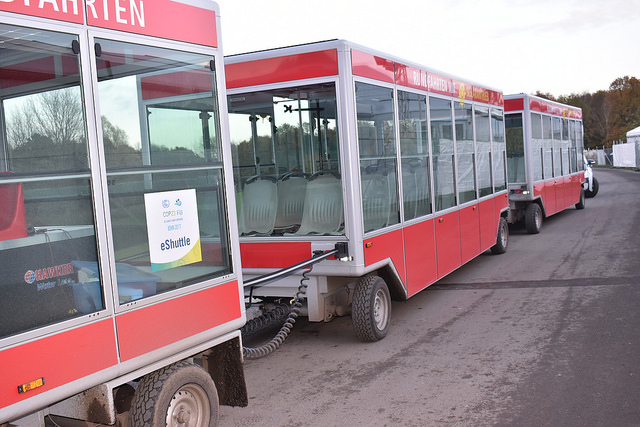
By Atayi Babs
PAMACC, Nairobi-KENYA: As the African clean mobility week drew to a close today, participants have identified electric mobility as a workable pathway to a more sustainable and cleaner transport system in Africa.
This recommendation, alongside other strategies, was approved by delegates to the Africa clean mobility week which comprised representatives of government agencies responsible for transport, environment, energy and finance from 42 African countries; oil and vehicle industry; and donor agencies.
Other delegates were drawn from the academia, civil society and the media.
Taking cognisance of the rapid urbanisation fueled by technological growth as well as Africa’s increasing rate of motorization which is considered the highest in the world, electric mobility, delegates say, presents an opportunity for African countries to leapfrog to cleaner transport with regards to reduced carbon emissions, improved air quality and economic growth.
African countries, according to the recommendations, are to explore the two low-hanging entry points into electric mobility. These low-hanging entry points revolve round deploying electric/hybrid buses and electric two/three wheelers for public transport.
In view of the fact that only a handful of African countries have put in place policies and regulations on electric mobility, delegates urged African governments to develop fiscal and institutional policy interventions capable of creating a favourable environment for electric mobility uptake.
These policies they underlined, must be integrated into the wider urban transport system planning with solutions for batteries, recycling and end of life programmes.
However, they warn that Africa’s unique mobility challenges with electric solutions must be understood.
The Africa clean mobility week therefore called for tailor-made products for African countries. These products according to the delegates, must incorporate electric motorcycles that can run long distance, and on high-load and rough roads.
Local manufacturing capacities are to be strengthened while governments are to set aside resources for peer reviews, and consumer awareness campaigns on the benefits of electric mobility and its impact on everyday life including road safety.
Other recommendations aimed at fast-tracking Africa’s switch to electric mobility include mainstreaming electric mobility policies into their nationally determined contributions as a way of supporting national and global climate change targets, and the constructive engagement of the private sector.
UN Environment’s Deputy Executive Director, Ibrahim Thiaw, sees green transportation as an imperative in order to boost sustainable development in Africa.
“Africa should leapfrog to clean mobility by domesticating best practices from elsewhere and investing in cleaner technologies like electric cars, two and three wheel machines,” said Thiaw.
Urias Goll, the Deputy Executive Director of Liberia’s Environmental Protection Agency (EPA), said that Africa required home-grown initiatives to advance the green mobility agenda.
“There is need to support local industries to manufacture hybrid and electric vehicles tailor made for the local market,” Goll said, adding that consumer awareness is key to boosting the adoption of non-motorized and cleaner transport models in Africa.









